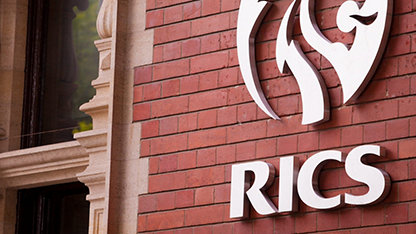On 12 April 2025, 08:00 BST, we will be disabling logins for specific member-facing platforms to improve internal processes. We expect this to finish 12 April 2025 at 17:00 BST.
RICS has responded to the recent Department for Business, Energy & Industrial Strategy review into the UK Governments approach towards net zero and how it can be delivered in a way which is pro-growth and pro-business.
With residential and commercial properties accountable for up to 25% of carbon emissions in the UK, decarbonising the sector will be critical for meeting out net zero target. The 2050 goal of net zero presents significant challenges to industry, government and consumers, but is also creates numerous opportunities for economic growth and innovation.
In our response, we highlighted the benefits investing in retrofitting can have for the UK – from reducing carbon emissions in homes, to helping reduce reliance on fossil fuels and increase our energy security. These actions will also help to create new jobs and upskill existing workers, allowing the UK to explore new supply chain and manufacturing opportunities and future-proof industries in times of economic challenges.
We highlighted our recent research with the Federation of Master Builders and CBI Economics into the benefit of cutting VAT for repair, maintenance and improvement in real estate to help decarbonise the sector – with a five-year cut estimated to create 340,000 jobs and generate an economic stimulus of £51 billion. It also reflected on our recent research into the cost-of-living crisis and how action to address net zero today can have wider socio-economic and health benefits for the public - thus increasing wider consumer spending and economic activity.
Underpinning the potential growth opportunities presented by net zero is the need for government and industry to create a holistic framework that takes serious action now.
This includes calling on government to develop a new, legislated target system to stimulate action, especially in the owner-occupier housing sector which has virtually no net zero regulations (outside of being net zero carbon by 2050) to work towards despite making up c60% of existing homes. RICS highlighted that at present the current methodology of using EPC as a benchmark is outdated and can have negative economic and environmental consequences – despite the good intention of UK Government policies.
Achieving net zero and economic growth would only be achieved by addressing the challenge of funding the high upfront costs of decarbonisation. The government needs to explore what grants and fiscal levers are available to support the cost of such works, but also look at the policies which would underpin the need to act in the first place.
This would only be successful though if the supply chain is robust enough to deliver on such ambitions. As seen from schemes such as the Green Homes Grant, red-tape and the cost of investment in upskilling and new technological without guarantee of a long-term, competitive pipeline of work is a difficult decision for many businesses to sign onto.
Commenting on our response Sam Rees, RICS Senior Public Affairs Officer said:
“We welcome the opportunity to respond to the departments review into net zero and how it can be pro-business and pro-growth.
“In responding to the review, RICS demonstrated that net zero rather than being a hindrance to economic growth, can be a stimulus for sustained fiscal benefits. It would allow industries working across the built environment to futureproof their business models by investing in the skills and technologies required to decarbonise millions of properties and our national infrastructure.
“Critical to this success is action by government to create a policy framework that drives demand and importantly funding. Without regulation to stimulate consumers and businesses to act, supply chains won’t evolve, funding opportunities won’t be taken up and our long path to net zero won't shrink. The economic and growth opportunities presented by the UK's net zero aims would have benefits for generations to comes and RICS and our members are well positioned to lead this change in the built environment.”
Published date: 31 October 2022














